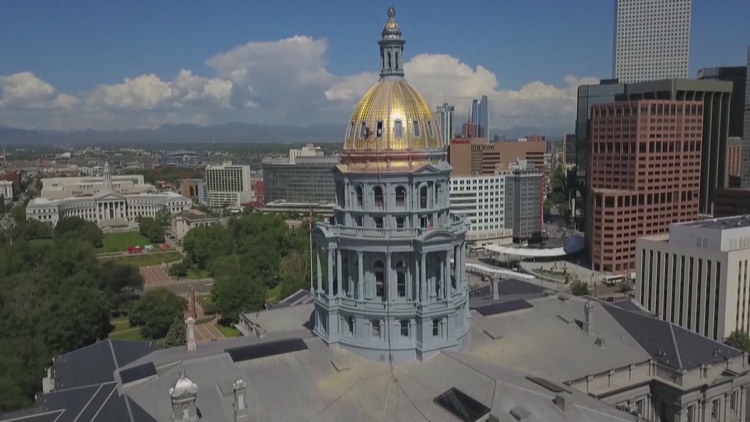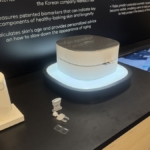[ad_1]

Democratic Governor Jared Polis called for a second special session within one year to minimize increases in property taxes.
DENVER — Republicans have the least power in state history but got one of the biggest victories on Thursday.
Governor Jared Polis (D) called for a second special session within one year to minimize increases in property taxes.
The special session is to make two conservative-backed property tax ballot issues go away.
Those ballot issues would minimize increases in property taxes even more, or perhaps reduce property taxes, and also cap future property tax increases. Those measures would limit local government funding for cities, counties, fire districts, water districts and perhaps schools, without state funding fully covering what would be lacking.
They qualified for the ballot through Michael Fields and the conservative group Advance Colorado, collecting hundreds of thousands of signatures.
State lawmakers passed a bill earlier this year that changed the calculation of property taxes, minimizing the next increase, and capping future property tax hikes. It was announced as a compromise with business groups that would then fight against the two ballot measures. Then, the business group, Colorado Concern, backed away from the compromise because it did not go far enough.
Those two ballot issues remain, and that brings us to a special session on Aug. 26.
That session is expected to enhance the changes made in the law signed by Polis earlier this year.
Those changes would mean:
- Additional cuts to the residential and commercial property assessment rates (part of the calculation that determine property tax bills).
- Greater cap on future property tax increases.
- Specific ballot language for special districts to ask voters to opt-out of the caps.
Ahead of the special session, 9NEWS political reporter Marshall Zelinger spoke with Polis and Fields.
Zelinger: “Is it a good precedent to call a special session because you’re concerned voters might say yes to a ballot issue that you don’t want them to say yes to?”
Polis: “Well, it’s always good when we can find a way forward that has more buy-in, broader buy-in, that Republicans and Democrats can agree on rather than have a divisive or risky set of initiatives.”
Zelinger: “Did you think voters would say yes to either of those [ballot] issues and that’s why we’re talking about this?”
Polis: “You know, Marshall, I have no idea and nor do you, nor do any of us, what voters are going to do, right? You never know what the voters are going to do. And if we can find a way to satisfy the real need and the real desire that voters have to reduce property taxes, at the same time making sure we’re not jeopardizing school funding and special district funding, of course we should take that. And it came very close at the end of last session, didn’t quite build a broad enough coalition, but I think that coalition is there now.”
Zelinger: “If you have a solution now in the special session that could have existed in the legislative session, was that a failure of leadership to not get it?”
Polis: “It could have. Yeah, it could have. I hoped it would. I mean, it was close, right? Both sides came very close, and I think we all came very close to reaching an agreement. I don’t think it’s a matter of playing the blame game, it’s really a matter of saying, I’m just glad that while there weren’t discussions for a while and both sides went to their corners, that people came back together and hopefully worked it out.”
Zelinger: “After the failure of Prop HH, you did a news conference, and you did a fake break glass in case of emergency. This is a private interview and then an executive order that’s going to get released. Why not the same performance as last year?”
Polis: “You know, did you want me to bring out something to do it with? That was, sort of, you know, playing off a riff. I think you and others were saying, ‘what is Plan B, what is Plan B’ and so we were saying, ‘OK, well because we didn’t really develop that during the campaign, but we had to figure out what that was.’”
Polis: “It’s not that your property taxes are going to go up a lot if we don’t come back, we can reduce them a little bit. That’s good. But we can avoid risky and divisive fights that would defund our schools and provide a great existential risk to fire districts and counties.”
Zelinger: “Is Michael Fields the most powerful Republican in Colorado?”
Polis: “No, I mean, I don’t think, again, this is not him as a Republican. What has power is that hundreds of thousands of Coloradans have put their name and signed a ballot initiative to put it on the ballot.”
Watch the full interview with Polis here:
“We agree that the people are the most powerful thing in the system, whether they’re electing officials or running ballot measures in order to do that. So, yeah, we agree,” Fields said. “I would say the citizens’ initiative process is a good check on the legislature, on the governor. I’m glad that it’s being used more and more, given that, I think, the legislature is out of step on a lot of issues with the people.”
Fields has agreed to pull the two ballot measures if the legislature keeps its promise in the compromise and makes the changes to the property tax calculation and limit future increases.
“We are not planning on bringing future measures forward unless the legislature goes back on this deal,” Fields said. “We’ve always said if the legislature goes and does this, we might get two-thirds of what we want, but you know, that’s what compromise is.”
He said he would not do what’s required to withdraw the ballot measures until the legislature sends the governor a bill to sign.
“I think this can be a same time thing, right? As the governor signs it, I sign something too,” Fields said. “I don’t think there’s going to be some kind of standoff because we both want the same thing.”
If Fields’ two ballot measures provide more relief for residents, why back off them, especially if a special session might suggest that the governor is worried they might pass?
“There’s just no certainty. Something could be polling high, and it could drop for different reasons. You don’t know how much the other side’s going to spend. You don’t know what’s on people’s mind at that time. I mean, there’s always risk when you’re running a campaign,” Fields said.
The special legislative session begins at 10 a.m. on Aug. 26. It takes a minimum of three days to pass a bill.
[ad_2]
Source link







